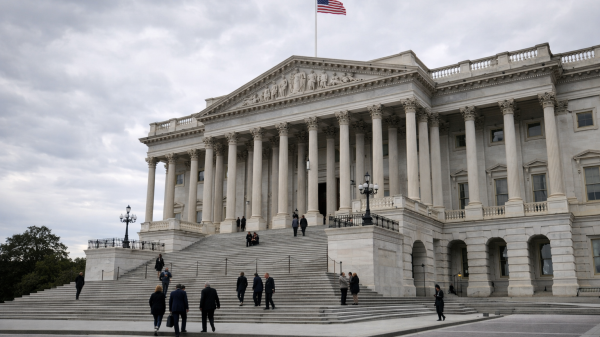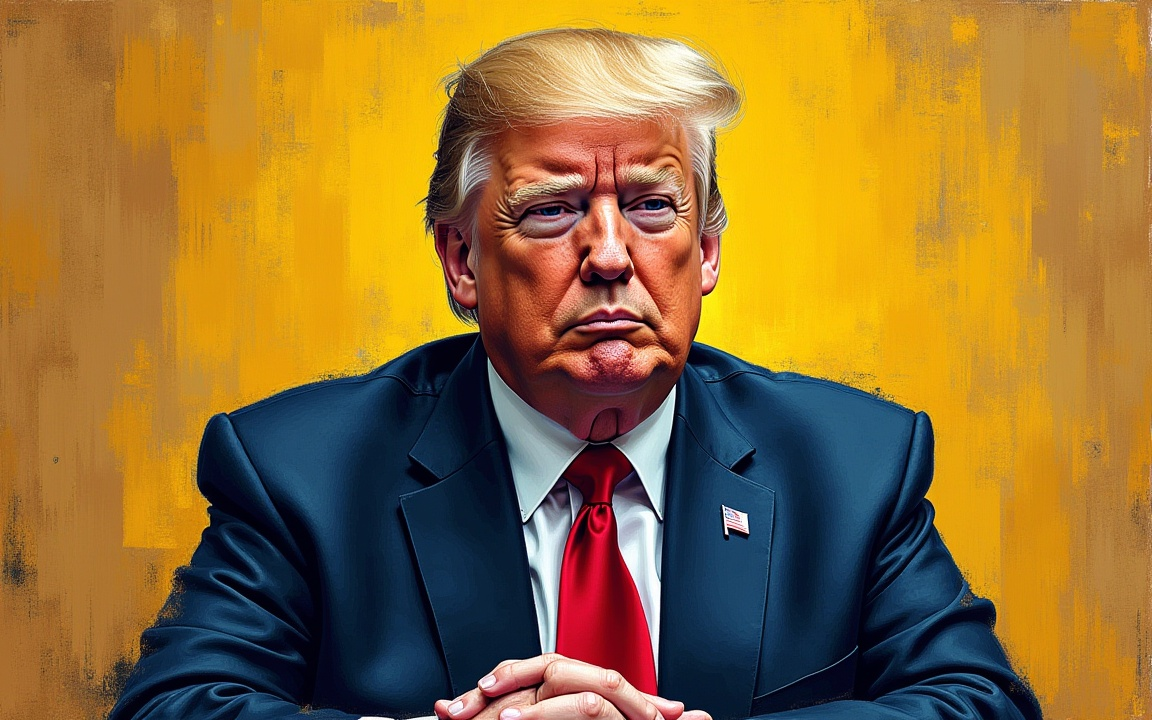President Donald Trump has enacted a significant new travel ban, barring individuals from 12 predominantly Muslim-majority and African nations from entering the United States.
This move, announced Wednesday, resurrects one of the most controversial policies from his first term and comes in the wake of a recent attack in Colorado that targeted an event supporting Israeli hostages.
Concurrently, Trump signed a separate proclamation suspending the visas of foreign students intending to participate in exchange programs at Harvard University.
The newly implemented travel ban, detailed in a presidential proclamation, covers Afghanistan, Myanmar, Chad, Republic of the Congo, Equatorial Guinea, Eritrea, Haiti, Iran, Libya, Somalia, Sudan, and Yemen.
The measure also imposes partial entry limitations on individuals from Burundi, Cuba, Laos, Sierra Leone, Togo, Turkmenistan, and Venezuela.
In a video posted on social media Wednesday, President Trump linked the ban to the recent Colorado attack, stating:
The recent terror attack in Boulder, Colorado, has underscored the extreme dangers posed to our country by the entry of foreign nationals who are not properly vetted, as well as those who come here as temporary visitors and overstay their visas. We don’t want them.
“We cannot have open migration from any country where we cannot safely and reliably vet and screen… That is why today I am signing a new executive order placing travel restrictions on countries including Yemen, Somalia, Haiti, Libya, and numerous others.” –President Trump
View replies
25.8K
Reply
Copy link
Earlier in the week, Trump had blamed the immigration policies of former President Joe Biden for the presence of the suspect in the Colorado incident, an Egyptian national who had overstayed his visa and, notably, would not have been affected by the provisions of this new ban.
Witnesses reported seeing the suspect use a makeshift flamethrower and throw an incendiary device during the attack. CBS News first reported Trump’s efforts to block travelers from these 12 countries.
The ban includes certain exemptions. It will not apply to individuals who already possess valid visas, lawful permanent residents of the U.S., or teams traveling for major international events like the World Cup or Olympics.
Those holding special visas granted for escaping persecution in Iran or for assisting US military efforts in Afghanistan are also exempted.
Harvard also in crosshairs: student exchange visas suspended
In a separate but related action, President Trump signed a proclamation suspending the visas of foreign students seeking to participate in exchange programs at Harvard University.
This move targets an institution that has frequently been a subject of criticism from the Trump administration, which alleges the university harbors a liberal bias and has not done enough to address antisemitism on its campus.
In the Harvard-specific proclamation, Trump accused the university of failing to adequately discipline conduct violations on campus.
He also complained that Harvard had only turned over information concerning three foreign students accused of dangerous, illegal, or threatening activity.
“Harvard’s actions show that it either is not fully reporting its disciplinary records for foreign students or is not seriously policing its foreign students,” Trump stated.
This action follows earlier administrative pressures on Harvard, including the freezing of federal research grants, reportedly due to regulatory penalties related to data governance and inadequate internal controls within the university.
Echoes of the past, a sweeping immigration agenda
This new travel ban largely mirrors the controversial policy implemented during Trump’s first term, which barred travelers from Cuba, Iran, Libya, North Korea, Somalia, Sudan, Syria, Venezuela, and Yemen.
The addition of Afghanistan to the current list is particularly noteworthy, following the Trump administration’s earlier suspension of the US refugee program and the freezing of federal funding for assistance programs, including those facilitating travel for Afghans already approved for resettlement in the US.
These measures are the latest steps in what has become a sweeping immigration agenda under Trump’s current term.
This agenda is aimed at cracking down on undocumented migration, significantly ramping up deportations, and completing the construction of the US-Mexico border wall initiated during his first presidency.
Securing US borders, fueled by voter concerns about crime and a surge in migrant arrivals, was a central promise of his 2024 presidential campaign.
Upon taking office, Trump swiftly put in motion efforts to reinstate a travel ban.
He ordered the secretaries of State and Homeland Security, the Attorney General, and the Director of National Intelligence to identify countries for which “vetting and screening information is so deficient as to warrant a partial or full suspension on the admission of nationals from those countries.”
Anticipated legal challenges and a test of presidential powers
The newly reinstated travel ban is widely expected to face legal challenges, much like its predecessor during Trump’s first term.
Many of Trump’s other immigration actions during his current White House stint are already being litigated in the courts.
The president has consistently vowed to carry out an agenda that tests the established boundaries of executive power on immigration policy.
The first-term travel ban was a defining moment of Trump’s presidency.
Issued in 2017, within days of his inauguration, the initial order barred people from seven predominantly Muslim countries from entering the US for 90 days.
The move sparked widespread chaos and confusion at airports, triggered global protests, and led to a deluge of lawsuits seeking to halt the order, which critics vehemently assailed as a “Muslim ban”.
Trump defended the measure as crucial for national security.
After initial judicial setbacks, his administration issued revised orders, altering the list of targeted countries and providing more specific details about the scope of the restrictions in an effort to withstand further legal scrutiny.
These subsequent modifications eventually led to the US Supreme Court upholding the travel ban in a 5-4 ruling in 2018.
The Court rejected claims that the policy targeted Muslims and, in doing so, delivered a major legal victory to Trump, bolstering a president’s broad authority over the nation’s borders.
One of President Biden’s first acts upon taking office in 2021 was to sign an order ending Trump’s travel ban.
However, during the 2024 campaign, Trump had pledged to reinstate it and expand it to cover refugees from Gaza if elected, and this week’s actions deliver on that key agenda item.
Since returning to office, President Trump has also declared a national emergency at the southern border, directing the Pentagon to deploy additional resources to address the situation.
His administration has intensified deportations of undocumented migrants and attempted to end automatic birthright citizenship for children of individuals in the country illegally—a move currently halted by the courts pending legal challenges.
Furthermore, the president has utilized tariffs to pressure Mexico and Canada to enhance border security and has directed federal agencies to identify federally funded programs providing benefits to migrants in the country illegally.
The post Trump’s new travel ban explained: which 12 countries are affected and why has Harvard been targeted? appeared first on Invezz




































